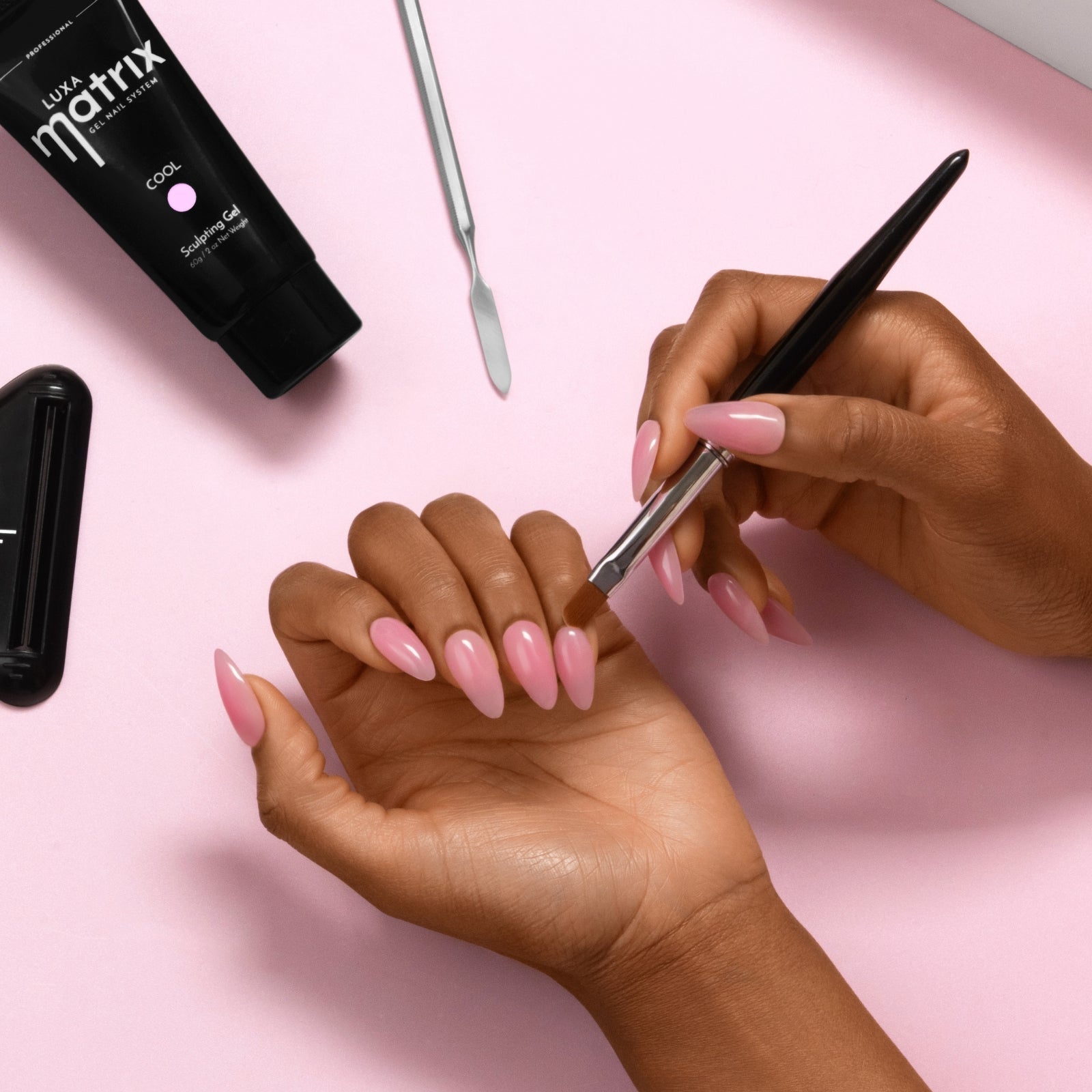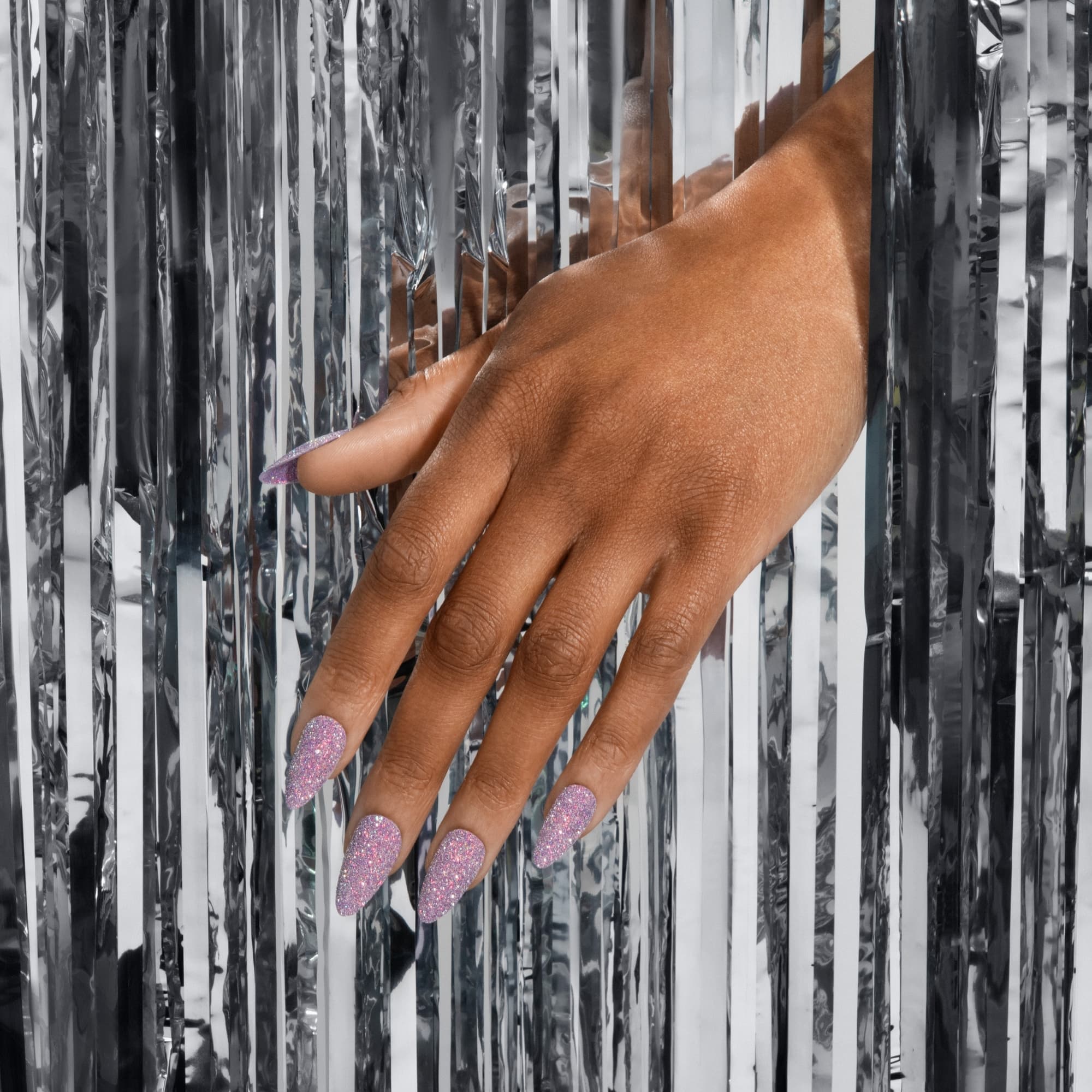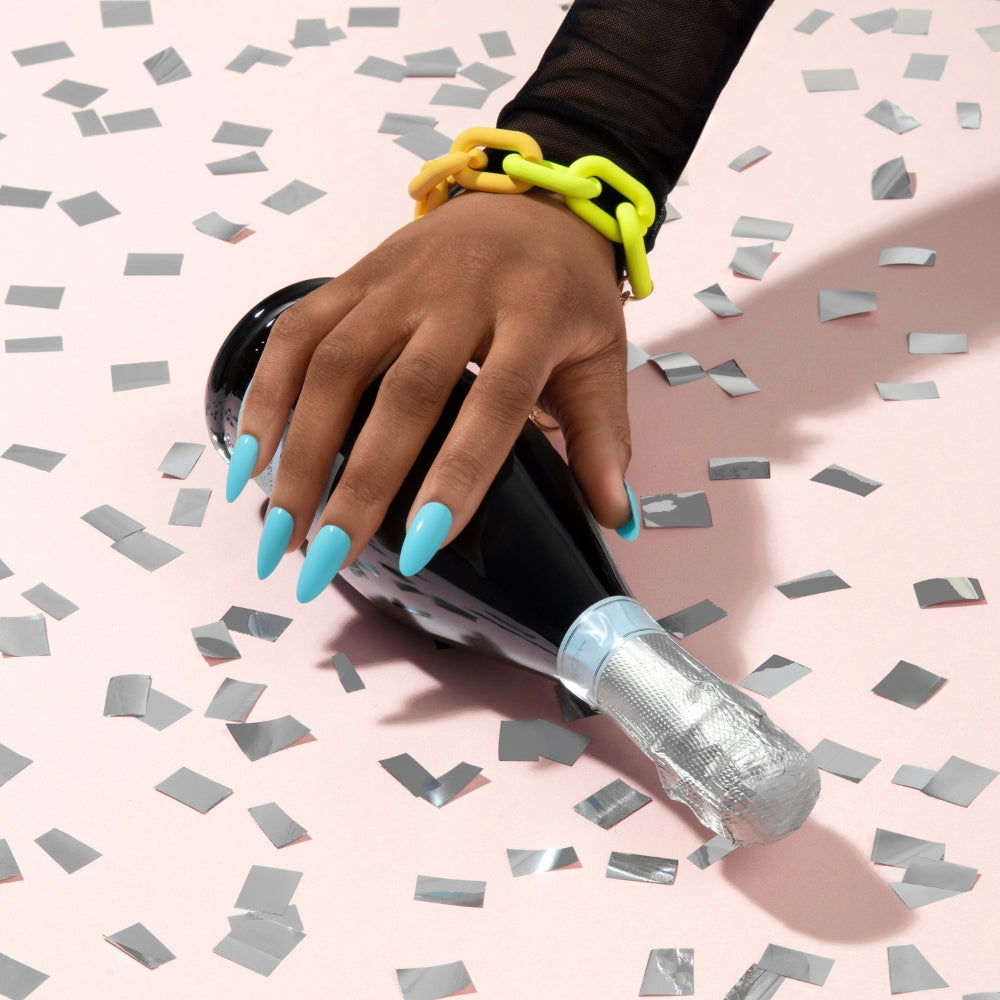
Why Does Gel Polish Burn?
If you’ve ever felt a burning sensation while getting a gel manicure, you’re not imagining things. When you place your hand under the UV lamp, that quick flash of heat can catch you off guard. So let’s talk about what’s happening here, and more importantly, how to avoid burning during your next set.
As a nail tech, I’ve had plenty of clients flinch, yelp, or “What was that?” look mid-curing process. I used to think it meant I did something wrong. But over time (and with much trial and error), I realized it’s part science, technique, and knowing your client’s nails.
What Causes the Burning Sensation in Gel Nails?
Here’s the quick explanation: when you cure gel products, whether gel polish or hard gel, a chemical reaction occurs called an exothermic reaction. That’s just a fancy term for “heat is released.”
This release of heat is what causes that sudden spike of warmth under the UV or LED lamp. And if the gel is too thick, or your nails are thin or damaged, that heat can feel like an actual burn.
Let’s break that down a bit:
-
Thicker layers of gel = more product to cure = more heat spikes.
-
Thin nails, a damaged nail plate, or recent trauma = more sensitivity.
-
Old gel, especially if it's partially cured already, can burn like crazy.
-
Improper curing settings or using the wrong lamp can cause discomfort, too.
In short, there’s a lot at play, and it’s not always your fault.
Common Reasons Why Gel Polish Burns
Now that we know the science, let’s get into the real-world scenarios. If you’ve ever asked yourself, “Why do my nails burn under UV light?”, here’s why:
1. You’re Using Too Much Gel
Layering on too much product doesn’t make it stronger. It just makes it hotter. Applying a thicker layer of gel product traps more energy, causing an intense heat spike. When you apply the gel, keep it in thin layers. This not only helps with curing but also reduces the chance your nails burn.
2. Your Nail Plate Is Too Thin
Over-filing the natural nail or doing back-to-back manicures can thin the nail plate, making you more sensitive to heat spikes. If your nails hurt during or after curing, that could be why.
3. Incorrect Product Application and Curing
This one’s big. Incorrect product application and curing are among the top causes of a burning sensation during a gel manicure. Some UV gel formulas require slower or cooler curing times. Always follow the manufacturer’s instructions, especially when doing gel nails at home.
4. You're Using a Powerful Lamp
A high-wattage UV nail lamp or LED lamp can cure too quickly, especially with builder gel or BIAB (Builder In A Bottle). A rapid curing process means faster polymerization and more heat.
Is This Pain Normal?
A mild burning sensation isn’t entirely uncommon, especially with builder gel. But it shouldn’t burn to the point where you’re pulling your hand from the lamp mid-cure.
You might wonder, “Why does builder gel burn, but regular gel polish doesn’t?” Good question. They are thicker and contain more polymers, creating a stronger exothermic reaction. They’re amazing for structure, but they do get hot.
That said, if the sensation is unbearable, there could be a separation of the nail plate, or if you feel lingering pain, it might be more than just a heat spike. It could point to:
-
An allergic reaction to the product
-
A damaged nail bed
-
Or improper application and curing
When in doubt, check in with a professional nail technician.
What Can You Do About It?
If you’re tired of burning every time you get a gel mani, here are some fundamental steps you can take:
1. Use Thin Layers
Apply the gel in thin, even layers. This helps with smooth application and reduces burning. You’ll also avoid lumps, bumps, and uneven texture. Bonus.
2. Choose the Right Lamp
Use the LED or UV lamp recommended by your product’s manufacturer. Mixing brands or using an ultra-strong lamp when your nails are weak is a recipe for discomfort.
3. Don’t Over-File
Let’s keep the nail plate healthy. Don’t over-buff or file too aggressively. If you’re prepping for gel application, use a gentle touch.
4. Do a Flash Cure
For extra-sensitive nails, try a flash cure: 5 seconds in the lamp, then pull your hand from the lamp for a few seconds, and repeat until fully cured. This slows down the reaction process and helps you avoid heat spikes.
5. Know When to Take a Break
If your nails burn every single time, or you’re feeling raw afterward, it might be time to give them a break. Try growing out your natural nails or even take a few weeks off entirely.
Is It Ever the Client’s Fault?
Not really, but their nail health plays a role. If someone comes in with thin nails, already damaged nail beds, or old gel from a previous set, they’re more likely to experience burning. That’s why a good nail technician will ask questions, adjust the product, and even switch up the lamp when needed.
Final Thoughts: You Deserve a Pain-Free Gel Mani
No one should suffer through their manicure. A little warmth? Sure. But pain? No thanks. Whether you’re getting your nails done in a salon or doing your nails at home, understanding why gel products burn can help you take control of your nail health and comfort.
And hey, if your nail tech shrugs off your pain or says it’s normal without trying to help, it might be time to find someone who takes your concerns seriously.







